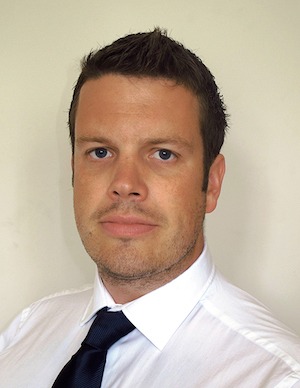Career Journey in Renewable Energy and Engineering Off-Grid Solar Solutions in Spain Simon Sharratt, Owner of Clear Sky Solar

Can you describe your current role and responsibilities?
Clear Sky Solar designs and installs off-grid residential power systems throughout Spain. For many people living in the Spanish countryside, a connection to the electric grid isn’t practical - given the high cost of extending power lines long distances to rural properties. With a well-designed solar system, battery storage and generator back-up, our clients can use electricity as in a “normal” house, without the requirement for a grid connection.
I am responsible for client meetings, system design and quotations, sourcing equipment and labour, as well as working with our team on-site installing systems.
So, how did you land your first job? Is it relevant to the job you are doing now?
My first job was working as an audio engineer: installing and operating sound and communications equipment on high-profile live sports events throughout Europe. I found this role through an online recruiter and moved across the UK to a new area to start working with this company.
Spending 5 years travelling with events, working with large scale systems and to very tight timescales showed me the importance of thorough planning and design to a successful engineering system – something that 15 years on I still rely on every day.
Talk us through your career progression…
Following 5 years as an engineer working on sports events, I moved into account management of live events, designing and planning the technical side of large-scale live events, such as conferences and awards ceremonies.
After 8 years in this role and a move to rural Spain, I began working in renewable energy and started a business designing and installing off-grid solar-based power systems. This role draws on all of my previous experience, from the fundamentals of engineering in my degree to ‘hands-on’ engineering, through to the planning and logistics of organising engineering systems.
How important are your qualifications vs your hands-on experience in your role?
I have a Masters’ degree in Electrical and Electronic Engineering, from Loughborough University in the UK. My degree has been invaluable, especially when tackling a new technology or moving into a new area of engineering – the fundamentals of electrical engineering I learnt at university still give me the confidence to work through a problem from first principles.
Hands-on experience is hugely important too, and very satisfying to see the theoretical turned into the practical, and without the experience of working with electrical tools and equipment, I would find it very difficult to correctly design solutions and anticipate labour requirements.
Any advice for jobseekers looking to get into your area of expertise?
Start from the bottom-up and really try to get a good balance of the theoretical and practical. For any engineering discipline, getting your hands dirty with real-life equipment and materials is just as important as understanding the equations and formulae that describe their behaviour and operation.









